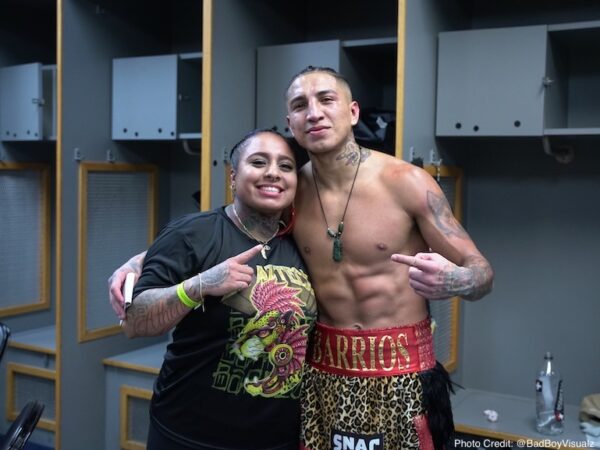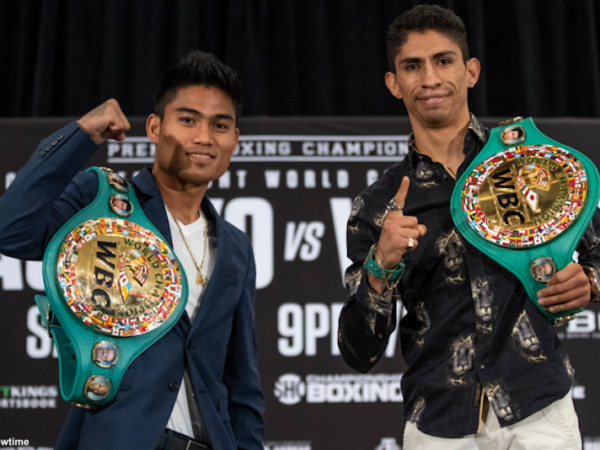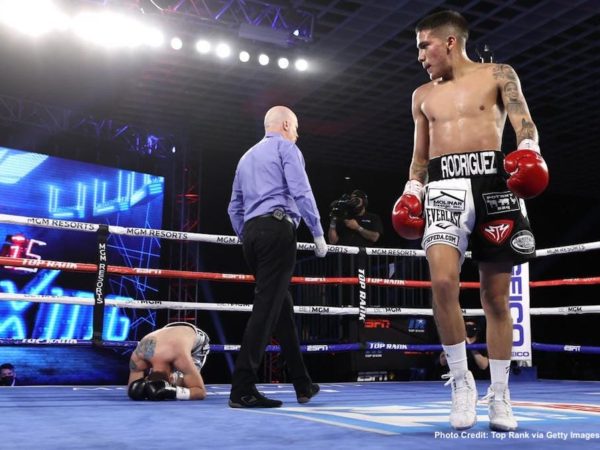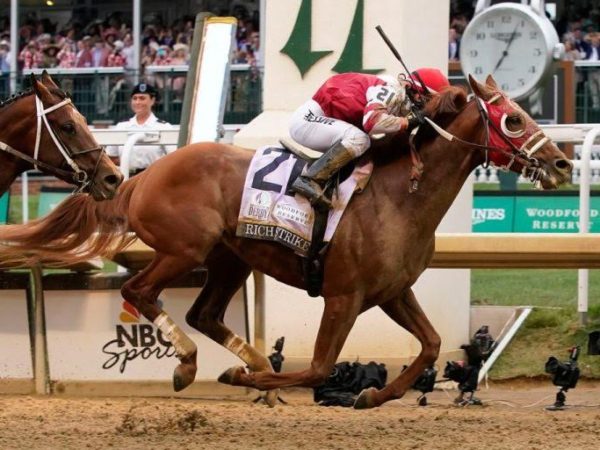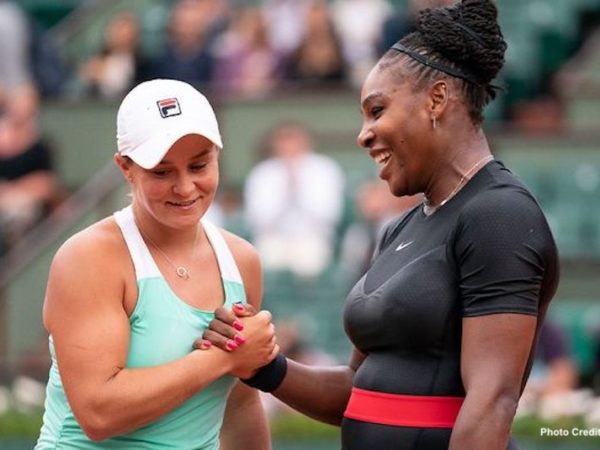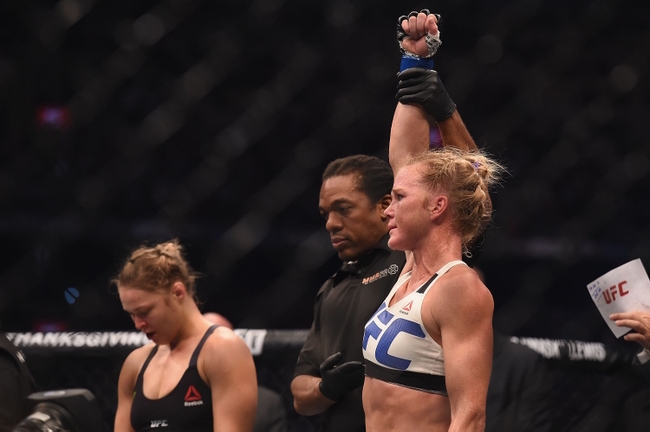
Photo Credit: Matt Roberts/USA TODAY Sports
This past week Ronda Rousey made an appearance on the Ellen DeGeneres show and opened up about her defeat to Holly Holm, admitting she had thoughts of suicide in the moments after the fight. As she lay on the table being assisted by medical staff she realized her perfect career was now tarnished with defeat. The quick defeat by Holm was a complete shock to her mind, and she was struggling to process it. Rousey’s career was no longer perfect, an expectation that she and most of the sports world had for her.
So prolific in her sport, no one was going to beat the Ronda Rousey. In her third title match in nine months, we all expected to have been talking about how she was the giant of her sport and how she made winning look so easy, and “how could anyone be that good”? Instead, the giant was defeated and we were all captivated by how quickly it all happened. Rousey explains that it was “destiny and that “it had to happen that way”. She truly believes there was a message in all of this, which intrigued me even more.
When an athlete is built up so high and their career is at the pinnacle moment how do they deal with defeat when it comes so unexpectedly? It was shocking to hear Rousey talk about her thoughts of killing herself, but is it rare to feel that way after such a big massive fall from perfection? Not really. There have been others before her who unfortunately did take their lives, some who were elite in their sport. All of them either had career-damaging defeat, or some never reached the status they had been hyped to be. Nonetheless, it was the defeat that became their demise.
One of the most heart-breaking stories I read during my research for this article was that of Robert Howard, an Olympic triple and long-jumper. Prior to his Olympic appearances, he won nine individual collegiate championships while at the University of Arkansas. He finished third in the triple jump at the 1997 World University Games and was named Collegiate Athlete of the Year by Track and Field News magazine for winning all four jumps in two NCAA Championship competitions. Not only was Howard an athlete, he also graduated from Arkansas with a Bachelor degree in Pre-Medicine/Microbiology, preparing him for a future in the field of medicine. Howard qualified for the 1996 Summer Olympics in Atlanta and the 2000 Summer Olympics in Sydney where he finished a disappointing seventh and eighth overall. He qualified for the 2000 Olympics placing first in the triple jump while enrolled in graduate studies at Arkansas medical school (UAMS), in and of itself an amazing achievement. In 2004 he tried again to make it back to the Olympics in hopes of a medal, but fell short placing fifth. His run at an Olympic medal was now over and his career as a long jumper was too. In his transition from athlete to neurosurgeon he was not able to let go of the one and embrace the other. Shortly after failing to make the 2004 Olympics he murdered his wife Robin Mitchell, a chief neurosurgery resident at UAMS, and then leapt to his death out the 10th floor window of his dormitory building. The story is tragic and so final. His dream of an Olympic medal was not to be and the defeat was so excruciatingly painful he took his own life and that of his wife. It’s a pain most of us can’t relate to but one that apparently many athletes feel. The stories of Johanna Nilsson, Antonio Pettigrew, and countless Major League Baseball players like Keith Drumright, Mike Flanagan, and Charlie Shoemaker among a few, show how difficult defeat can be on the human psyche. Failure is something we never prepare for, and difficult for some to accept. However, not all choose suicide, so what is the difference?
The common thread in all of the heart-breaking suicides is the fact that they all saw themselves as failures and nothing more. Their image was damaged, their dreams weren’t realized, and they couldn’t see themselves living with this reality. But what most of us can’t understand is why did they all see themselves only as “the athlete”? Why was that their everything? Why did the athletic achievements of their life become more important than anything else? If they had valued their other roles in life as mother, daughter, sister, brother, father on a higher scale and more importantly, would it have made a difference?
In her closing moments with Ellen, Rousey said her thoughts quickly changed in the hospital from “What am I anymore if I’m not this? I’m nothing” to “Maybe this is my purpose, maybe winning all the time isn’t what’s best for everybody. Everyone has their moment of picking themselves up off the floor. Maybe I just had to be that example of picking myself up off the floor for everyone. I really do believe I’m still undefeated because being defeated is a choice. Everybody has losses in their life but I choose to always be undefeated.” Ronda Rousey the person is more valuable to all of us than just Ronda Rousey the MMA fighter. She recognized this and made an adjustment in her thinking, and it changed her course. It prevented her from following the same path these other athletes weren’t able to change.
The interview with Rousey was extremely touching as Ronda reflected on “what am I anymore if I’m not this?” Our identity, we all see ourselves a certain way. We define ourselves by our accomplishments but we don’t know what to do when faced with defeat. It’s later when she reflects upon “why did this happen to me?” that we see the most important message in all of this. Losing doesn’t define you it’s merely a tool to make you better. I wish parents would play this video to their children or to friends going through a rough time, or to the athlete who just suffered the worst loss of their entire career. Losing doesn’t define you, and you can use it to make you stronger. The process begins in your mind. It begins where you define yourself. “Who are you”? Are you just an athlete put on this earth to entertain and astound people with your talent? Or are you a person who happens to be an athlete whose talent inspires others but that person is not just an athlete.
It’s a great lesson for all of us humans who fail, lose something valuable, make a bad decision, or have bad things happen to us. There are many areas of our life that we may use to define who we are. Rousey showed us the proper balance and the proper place that losing needs to have in our lives. When our thinking is out of balance we need to see the bigger picture. We need to allow other things to define us and the importance of all of those things, and not just our achievements. That correction in our minds just might save a life or two. It’s not about being the “tough” athlete, the “tough guy”, or the “strong person”, it’s about being honest with ourselves and to others that we are vulnerable and hurt. We shouldn’t expect Ronda Rousey to be tough all the time. We shouldn’t expect it of anyone.

